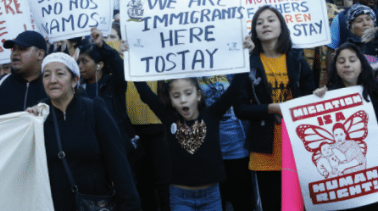THE GREAT ESCAPE
Migration is the movement of a population from one place to another. According to the International Organization for Migration, by 2017 there were more than 210 million migrants on the planet. Migration can occur within borders of the same country, or from one country to another. In the latter case, the movement of the population towards a country is called immigration. A person may emigrate from one country to another bound by the circumstances of force majeure(...) : natural or environmental disasters, internal displacement(...) , conflict(...) , or extreme poverty. In contrast, migrations may also occur due to populations’ searches for greater economic advantages, and subsequent better standards of living. Immigrants often face a myriad(...) of advantages and disadvantages when settling in their adoptive(...) countries. Advantages
1. Improvement of the quality of life: Most immigrants hope for an increase in standard living conditions. Living in a crime-free environment, with citizens’ benefits and social security, is often a common motivator urging people to move from one country to another.
2. New personal and professional experiences: This unfamiliar state of life encourages immigrants to make the best of their new personal and work environments. When they leave their comfort zones, immigrants are faced with the need to take on new challenges: being more independent, living alone, saving, creating friendships and making professional commitments.
3. Contact with new cultures and expansion of knowledge: Travelling gives you the opportunity to learn about new cultures, gastronomy(...) , means of transport, idioms, traditions, and even overcome language barriers. Making a new life in another country opens the doors of knowledge through the autochthonous(...) history of each nation.
Disadvantages
1. Racism and cultural barriers: Not all countries are hospitable(...) to immigrants. In many cases, cultures of resistance to change prevail(...) . Immigrants may be victims of racial discrimination or xenophobia(...) .
2. Language barriers: If you choose to migrate to a country with a language other than your own mother tongue(...) , it is essential to have at least the basic notions(...) of that language. Otherwise, even the simplest task of buying a loaf of bread can be a challenge.
3. Employment difficulties: Unemployment can represent a significant disadvantage for an immigrant, especially if they decide to live in another country without valid academic and/or professional credentials, or with credentials not recognised by their adoptive country. (Reading text adapted from lifepersona)

